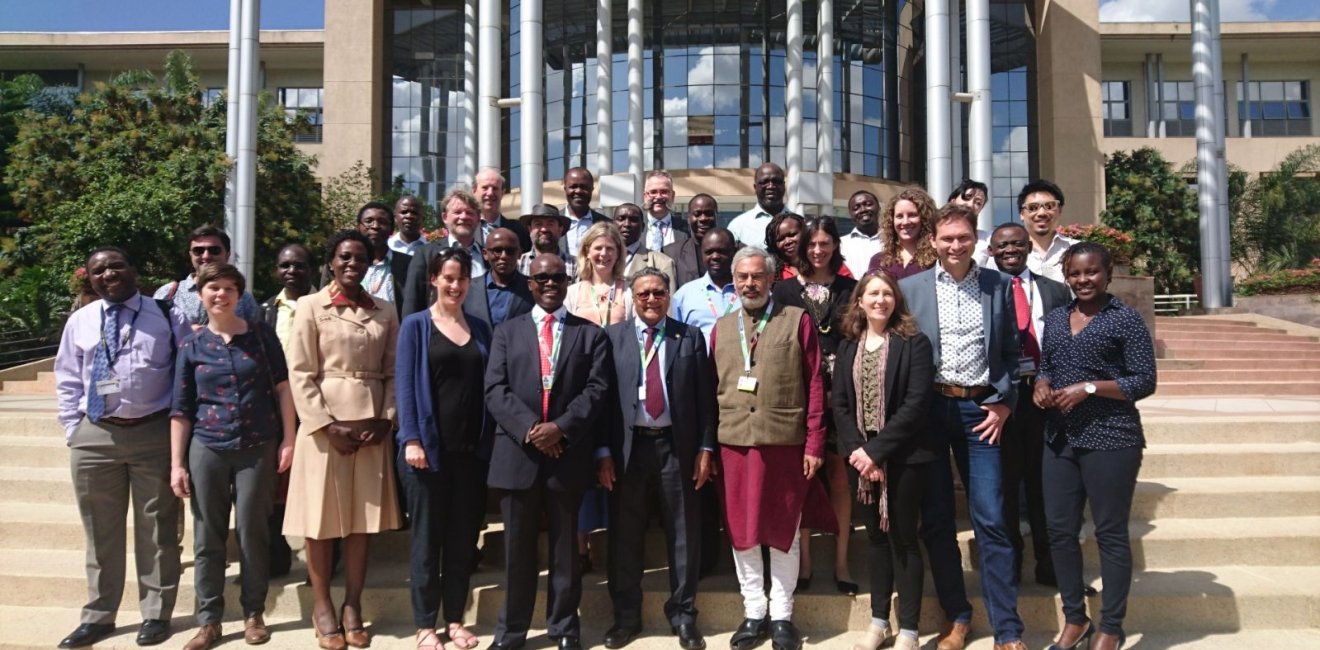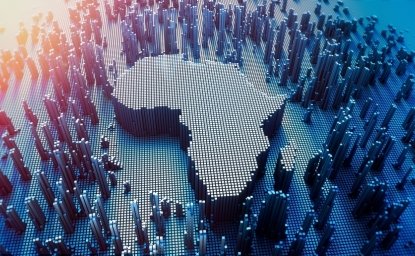
A blog of the Science and Technology Innovation Program
Launching the African Citizen Science Association at United States International University, Nairobi, Kenya, with the UNEP Citizen Science Delegation.
This post was re-blogged with slight modifications from the Citizen Science Association (CSA) Blog.
One billion people engaged in citizen science by 2020.
This goal was embedded in a Global Vision Statement presented at the UN Science-Policy-Business Forum for the Environment, an event preceding the United Nations Environment Programme (UNEP) annual Assembly (UNEA) in Nairobi, Kenya, in December 2017. While recent estimates have us well underway, there is still a lot of work to do to progress citizen science.
More significant than the goal itself, however, is what prompted it -- UNEP’s interest in and support of citizen science. Why the focus on -- and high hopes for -- citizen science from an authority that sets and promotes the global agenda for environmental sustainability? And what does UNEP’s interest mean for us, those doing the work that could reach one billion people?
An initial answer to the first question may be found in UNEP’s investment in a pilot citizen science community and supporting platform. Global Mosquito Alert, supported by partners including the Wilson Center, the European Citizen Science Association, and UNEP, is a new citizen science initiative that aims to leverage networks of scientists and volunteers for the global surveillance and control of mosquito species known to carry the following diseases: Zika, yellow fever, chikungunya, dengue, malaria, and the West Nile Virus. By networking citizen science projects, people, and data, Global Mosquito Alert will help capture and leverage locally-relevant information to inform large-scale environmental policy and help protect human health.
But from a bigger-picture perspective, UNEP’s interest may relate to the principles that inform the UN’s larger agenda for the environment. These include innovative strategies for collective and equitable engagement and action, particularly towards the 17 Sustainable Development Goals (SDGs) that UNEP hopes to achieve by 2030. Citizen science may serve a unique role in fostering the knowledge and governance needed to advance, and track progress towards, these kinds of global goals (see Danielsen et al. 2014 and Chandler et al. 2016). For example, by collecting information at spatial or temporal scales beyond what “traditional” science can support, citizen science can yield both locally relevant and globally-scaled data required to understand the SDGs. Citizen science can also build or strengthen relationships between UNEP and local communities, where individuals may become more engaged in advancing and tracking SDGs through scientific work and can offer insights into which SDGs should be prioritized locally.
Dr. Anne Bowser co-led the Citizen Science Delegation to the UNEP Science Policy Business Forum. Here, chairing a Forum session on citizen science. Flickr photo via UNEP | CC BY-NC-SA 2.0
Achieving this kind of substantive impact, not just big numbers of participants, calls for citizen science that is well designed and well supported. It was with this idea in mind that an invited Citizen Science Delegation drafted and presented the Global Vision at the December 2017 UNEP events in Nairobi. With support from UNEP and partner organizations, three representatives from CSA were in attendance: Board member Anne Bowser of the Wilson Center (who co-led the Delegation along with Martin Brocklehurst from the UK and Johannes Vogel from Germany), Interim Director Jennifer Shirk, and Board member Shannon Dosemagen (who was invited by UNEP to share the work of her organization, Public Lab). They joined representatives from Associations in Europe and Australia, and citizen science delegates from many other regions of the globe (including a burgeoning citizen science association in Asia).
Despite many interests striving to be heard during this global event, the Delegation was granted prominent billing both in plenary session at the Forum (see the video of presentation by Johannes Vogel, ECSA Chair) and — significantly — in front of the subsequent Assembly itself (via the Science & Technology NGO working group).
Connecting visions, goals, and agendas across a global scale is complex – something the UN can appreciate. The statement included a commitment to launch a global consortium for citizen science. This consortium, to be housed in its formative phase at the Wilson Center and led by Anne Bowser, will network across citizen science associations to provide a single point of contact for addressing global opportunities. The consortium also seeks to network, support, and seed new associations and communities of practice. Efforts to found a new African Citizen Science Association, spearheaded by faculty at the United States International University just outside of Nairobi, are already underway.
Professional science alone cannot provide information at the scales and resolutions necessary to understand environmental change. The dominant culture of science rarely accounts for different ways of knowing, and often fails to engage the public. Citizen science emphasizes collaborative intelligence and co-creation to facilitate scientific and community-based solutions. But fully realizing the transformative potential of citizen science requires coordination, partnership, and mobilization across geographies, sectors, and scientific research domains. By building collaborations across citizen science networks, the goal of reaching 1 billion people by 2020 seems within reach.
Related Articles & EventsAuthor


Science and Technology Innovation Program
The Science and Technology Innovation Program (STIP) serves as the bridge between technologists, policymakers, industry, and global stakeholders. Read more





